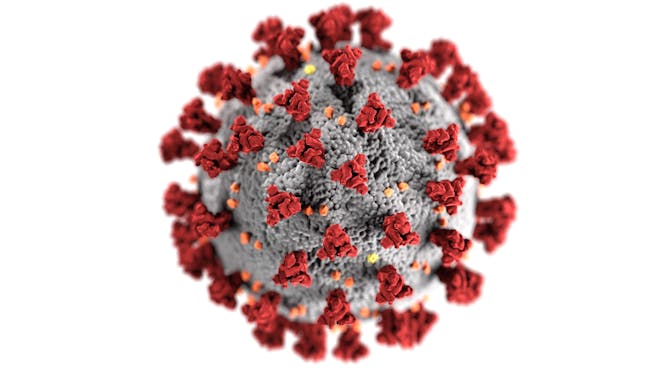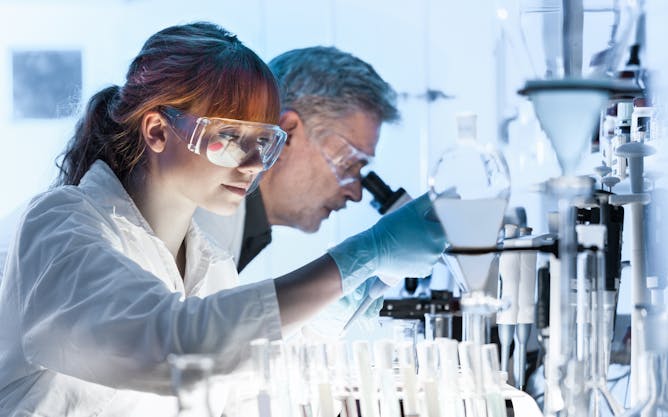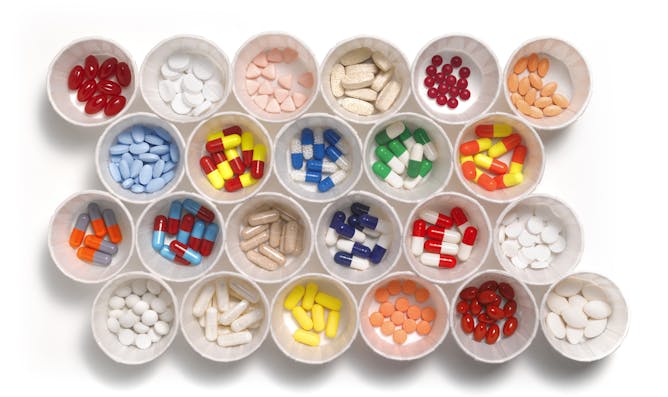
Coronaviruses get their name from the crown, or corona, of spikes that adorn the outer surface of the virus, as seen on this illustration of a highly magnified virus.
(U.S. Centers for Disease Control and Prevention)
Karen Mossman, McMaster University
By isolating SARS-CoV-2, the virus responsible for COVID-19, researchers can now work on developing tests, treatments and vaccines in Canada.
|

Canadians can look to their national sport for lessons in responding to COVID-19.
THE CANADIAN PRESS/Sean Kilpatrick
Stephen Archer, Queen's University, Ontario
Lessons learned from Canada's favourite game can offer some wisdom during the COVID-19 pandemic.
|

Many of the tasks employees are doing now were not imagined even weeks ago. People are becoming crisis managers, sanitation monitors and work-from-home co-ordinators.
(Unsplash)
Lisa Cohen, McGill University
The coronavirus pandemic has forced employees and businesses to change the way they operate. Some of those changes may be permanent.
|

Solar films could turn windows into powerful solar panels.
(Pixabay)
Michael D. Mehta, Thompson Rivers University
New lightweight, efficient and ultra-thin solar technologies show promise, but it may be too soon to abandon conventional solar photovoltaics.
|

With lab meat technology still in its infancy, it’s a good time to consider the social and cultural challenges that may become more amplified in North American food systems with the advent of clean meats.
(Shutterstock)
Sarah Duignan, McMaster University
If lab-grown meat is truly going to be the next frontier in ethical eating, it’s important to consider who's most at risk of being left behind in the race to develop it.
|

Il existe 20 000 médicaments approuvés par la FDA. Il en existe peut-être un qui pourrait combattre le COVID-19, mais encore faut-il trouver lequel.
Peter Dazeley/The Image Bank via Getty Images
Nevan Krogan, University of California, San Francisco
Parmi les 20 000 médicaments approuvés par la FDA, certains peuvent traiter le Covid-19. Une équipe de l’Université de Californie à San Francisco est en train d’identifier des candidats possibles.
|
COVID-19
|
-
Katherine Seley-Radtke, University of Maryland, Baltimore County
A medicinal chemist addresses questions about chloroquine and hydroxychloroquine: what it is, whether it is effective against COVID-19 and whether it can treat and/or prevent this disease.
|
|
Health
|
-
Susana Ferreira, University of Georgia; Travis Smith, University of Georgia
In a rapidly warming world, temperature increases are a challenge to mental well-being. A group of economists quantified the relationship.
|
|
Science + Technology
|
-
Jasmin Graham, Florida State University
You won't see a blue shark near the beach, but thanks to 50 years of tagging data, scientists are learning about their wide-ranging lives at sea.
|
|